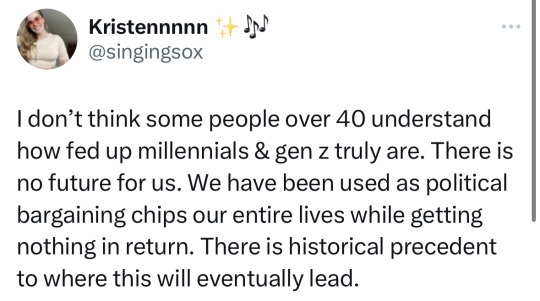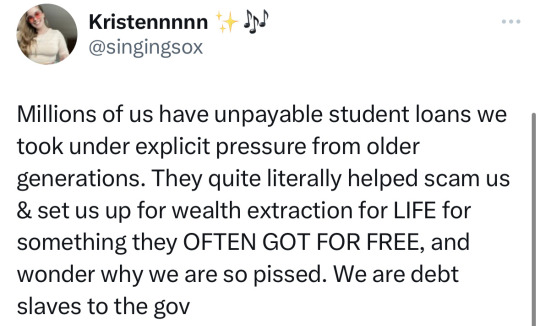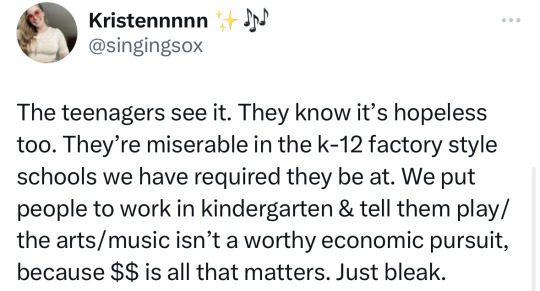#enviromental disaster
Explore tagged Tumblr posts
Photo







A Bride’s Story, volume 4 by Kaoru Mori
This series was always good from the start but since volume 3 it’s really picked up and moved into ‘addictive reading’ territory. In the beginning of this volume we discover that Amir’s old clan is having trouble after losing land to grace their sheep, this plotline isn’t developed much but the groundwork has been laid down for future volumes. When I picked up this series I thought Mr Smith would be travelling the silk road route and we would meet new characters but ultimately they would be left behind as he moved on, I’m pleasantly surprised that it’s the opposite, characters introduced are going to be with us throughout the series, their story is not just a moment in time, we will see their story evolve as their lives do. So we get a short scene with Amir herself and then with Pariya as she struggles to behave herself during a meeting to discuss her possible marriage. The majority of the rest of this volume centres on Laila and Leily, two trouble-making twins who save Mr Smith from drowning.
As we move on to couples that are more age appropriate for each other, we now see romantic comedies and romantic dramas played out and I’m getting engrossed in these different love stories. I’m also starting to appreciate the variety of female characters that Kaoru Mori has created: Amir is kind and a good listener but also a skilled hunter and resourceful woman, uninhibited in many ways. Pariya is outspoken and brash but self-conscious of this and regretful as she struggles to keep her anger in check. While the twins Laila and Leily are free spirits, hyperactive and with a scary lack of mindfulness when it comes to other people. While Talas in the previous volume was a shy woman struggling to reveal her feelings and take charge of her life, in this volume we find out how many women have secretly done all manner of things to secure a marriage in a time where marriages were decided on by the male heads of each family, it’s an excellent example of how woman are not passive creatures when it comes to their future, even if they have to deal with a highly patriarchal society.
As always these books are also rich in history and culture of the various countries Mr Smith travels through, in this volume what struck me was the importance of the Aral Sea for the community. The Aral Sea was the fourth largest lake in the world, located between Kazakhstan and Uzbekistan, it began shrinking in the 1960s due to the rivers that fed it being diverted by Soviet irrigation projects, by the 2010s it had largely dried up. The fishing industry that depended on it, collapsed, the water and surrounding areas became polluted. UNESCO has added historical documents concerning the Aral Sea to its Memory of the World Register as a resource to study the environmental tragedy. For more information check out: https://en.wikipedia.org/wiki/Aral_Sea. A Bride’s Story doesn’t go into the recent history of the Aral Sea, it just shows the beauty of what the Aral Sea once was, and this is enough to encourage a reader to find out more for themselves, and once you do the various casual comments made by characters throughout the books about Russian and British presence and interference start to resonate even more.
Review by Book Hamster
#just finished reading#A Bride's Story#Kaoru Mori#aral sea#Kazakhstan#Uzbekistan#enviromental disaster#manga review#manga recommendation#read manga#reading blog#manga art
8 notes
·
View notes
Text
Ouf this hit too close to home. I've always gotten easy A's no studing required. I love art and want a career in it ,BUT my mother thinks because I have A's I HAVE to go to college as a doctor or lawyer, otherwise I'm wasting my potential. I don't want 100,000+ in debt for a degree I don't want.
Sorry for the rant I know this is a art blog but this was special to me.




Source
#boomers ruined economy#millenials#millenials and gen z ere being exploited to paid for the boomers#gen z#economic disaster#enviromental disaster#it would take centuries to undo the damage boomers did
6K notes
·
View notes
Text
It's pretty fucking insane that snow is mixed with toxic chemicals in some states like Michigan right now.... some of the snow isn't even melting

0 notes
Text
I've seen people talk about what course kabru would be in a collage, and Im tired of it. Guys. He'd be an environmental social science major.
#text#dungeon meshi#kabru of utaya#delicious in dungeon#We as a collective should agree thay he would be in some form of humanities major. any form of rebuttal out be futile.#why did i pick environmental social science?#well utaya is very much a natural disaster. and we know that one of kabrus all time goals is to prevent another utaya from happening#he also wants to know the secret of the dungeon and also prevent the elves from claiming the land.#and in the narrative he does prevent it from happening but he does so in a very political way (lol#very in character for him)#so by that logic the real world equalv would be him advocating for environmental rights and policies for disaster mitigation#which is! enviromental social science.#HE WOULD NOT BE IN BUISNESSSSSSSSSS HES A NEPO BABY CMON.
27 notes
·
View notes
Text

Climate change will be a string of disaster videos on your feed, until the day you're the one filming it.




#Climate change will be a string of disaster videos on your feed#until the day you're the one filming it.#climate change#ausgov#politas#australia#global warming#environmental#environment#co2 emissions#co2#pollution#climate crisis#climate action#climate justice#climate and environment#auspol#tasgov#taspol#fuck neoliberals#neoliberal capitalism#anthony albanese#albanese government#environmental activism#enviroment art#enviromentalism#environmetalists#class war#pollutants#polluted air
12 notes
·
View notes
Text
To cut it short and sweet, this needs everyone immediate attention, and I’m honestly both upset and pissed that I hadn’t heard about it sooner. I’m sure by now a lot of people are just now hearing about it with it now circulating on social media - TikTok especially.
Right now, The Willow Project is being decided on by the Biden Administration which will basically not only be destroying native land in Alaska, wolf life, ecosystems and so on for the sake of oil and material gain, but this could also permanently damage the O-Zone layer as this project is apparently meant to hon for thirty years. THIRTY FUCKING YEARS. That damage will never be able to fixed.
We need to do something, I have two links for which you can send in letters to the Biden administration on as well as a change.org. Regardless, something needs to be done, do what you can, boost the hell out of this because this is a problem that won’t just harm us, but those in the future too. I literally had my own younger sibling come to me because she was so stressed about The Willow Project. They’re twelve. Fucking TWELVE, NO TWELVE YEAR OLD SHOULD BE STRESSED ABOUT THE ENVIRONMENT AND THE POTENTIAL END OF THE WORLD.
I don’t care how you do it or where, but boost the fuck out of this, let it be known that we are fucking tired of these people I’m power who are SUPPOSED to take care and help us repeatedly keep fucking us over and making things worse solely because they’re all old and it wouldn’t be affecting them in their lifetime. How selfish. Do something, not just for yourselves, but for those in the future that will be impacted by these choices.
#stop the willow project#the willow project#Protect the arctic#environment#environmental disaster#enviromental
68 notes
·
View notes
Text

'we want a hundred more battery factories in Hungary! - just a hundred? - No, a thousand!'
#battery#battery factory#factory#enviromental#crisis#environmental disaster#decay#acid#hungary#artists on tumblr#media artist#visual#ivo3d#gif#loop#techno#ai#Sd#brutalist#contemporary art#architecture#architectural#timelapse
20 notes
·
View notes
Text
"Phasing out animal agriculture represents “our best and most immediate chance to reverse the trajectory of climate change,” according to a new model developed by scientists from Stanford and the University of California, Berkeley."
"Based on the model, published in the open-access journal PLoS Climate, phasing out animal agriculture over the next 15 years would have the same effect as a 68 percent reduction of carbon dioxide emissions through the year 2100. This would provide 52 percent of the net emission reductions necessary to limit global warming to 2 degrees Celsius above preindustrial levels, which scientists say is the minimum threshold required to avert disastrous climate change.'
"Many will scoff at the idea that billions of people can be convinced to switch to a plant-only diet within 15 years. To these skeptics, Eisen points out that other revolutions have happened in less time. “We went from having no cellphones to cellphones being ubiquitous in less time than that. Electricity, cars, solar panels – all became common in a relatively short period of time,” Eisen said."
#guys seriously please go vegan#ha ha not to be dramatic but the fate of the world depends on it lol#animal rights#human rights#existential#veganism#vegan for the animals#enviromentalism#enviromental#environmental disaster#climate change#global warming#global health#international#we're all gonna die#or not#it depends
4 notes
·
View notes
Text
Sustainability dilemma: Project into the future and concern ourselves with the wellbeing of future generations, the availability of their resources, and the health of the planet they live on, or live our lives now, as we are, without feeling like a burden just for existing? How do we grapple with this internal moral dilemma, while simultaneously balancing between both realities? How long until these two tectonic plates of worry finally meet in the middle, forming a fortress of stone all their own? What is required to facilitate that union?
#sustainability#climate#climate disaster#climate change#climate emergency#enviromental#environmentalism
3 notes
·
View notes
Text
Thanks EPA

#derailment#enviromental#environment#environmetalists#government#corruption#corrupt government#epa#norfolk southern#palestine ohio#disaster#needs#safetysecurity#news#petslover#dark humor#libertarian#memes#dank memes#politics
1 note
·
View note
Text
The global Climate Adaption Market in terms of revenue was estimated to be worth $23.2 billion in 2024 and is poised to reach $40.4 billion by 2030, growing at a CAGR of 9.7% from 2024 to 2030 according to a new report by MarketsandMarkets™. The climate adaptation market is experiencing robust growth due to several new drivers. Firstly, advancements in climate modeling and data analytics are enabling more precise predictions of climate impacts, encouraging investment in adaptation technologies. Secondly, the increasing integration of Internet of Things (IoT) and artificial intelligence (AI) in climate monitoring systems enhances real-time data collection and response capabilities. Thirdly, corporate social responsibility (CSR) initiatives are pushing companies to adopt sustainable practices, including climate adaptation strategies, to improve their public image and meet stakeholder expectations. Additionally, there is a growing recognition of the economic benefits of proactive adaptation measures, such as reduced damage costs and enhanced operational efficiency, which is spurring further investment.
#climate adaption#climate adaptation#climate solutions#climate action#climate change#climate adaption market#climate adaptation market#weather#energy#energia#power generation#renewable power#renewableenergy#renewable resources#renewables#renewable energy#renewablefuture#sustainable future#sustainable development#sustainable energy#sustainability#sustainable#nature#natural disasters#environmental services#environmental solutions#enviromental#environmental news
0 notes
Text
Outside of my usual stuff I’ve come to the attention of an epidemic that no one is discussing. A species of Crayfish that mutated 25 years ago killed every male and rapidly births clones of itself escaped an aquarium and has been conquering Europes Water Ways for the past 5 years. Because of how it reproduces its an invasive species on an apocalyptic scale and getting rid of them is quote “like emptying the ocean with a thimble” not even graveyards are safe as they infested every ounce of water within a Belgium cemetery.




#enviromental#environmental disaster#crayfish#nature#damn nature you scary#Europe#epidemic#epidemics#invasive species
1 note
·
View note
Text
The Train Derailment in Ohio
NO. 1
On February 3rd, dozens of cars belonging to Norfolk Southern train went off track in East Palestine, Ohio, spilling gigantic amounts of toxic chemicals into the soil, water, and air, killing over 3500 fish have died; locals of the town affected are experiencing nausea, headaches, burning eye sensations and more. Residents have also reported that foxes, chickens, cows, and house pets are dying as a result of the toxin chemical release. The chemical released from the crash, vinyl chloride, is extremely toxic and can severely affect an individual’s liver, kidney, lung, nervous system, and blood. It is highly dangerous and can lead to cancer.
youtube
NO. 2
The government-controlled burned the hazardous chemicals, since left untouched could cause an even bigger explosion, and residents were asked to leave at first on February 6th. On February 8th, residents were asked to come back, with officials claiming the area was safe to come back to. Except, residents are claiming that this is not only a government and corporation issue but a massive ecological disaster from which we might not return. The derailment has caused massive environmental problems because scientists and scholars fear that the toxin waste will spread throughout the Ohio River, as it is connected to rivers and basins in 14 states, providing drinking water to over 5 million Americans. The smell of chlorine was reportedly lingering in the air days after the controlled burn and when residents were returning. When vinyl chloride burns, it decomposes into hydrogen chloride and phosgene, with the latter highly poisonous, used in WW1 as a choking agent. Hydrogen chloride is irritating and corrosive to any tissue with which it comes to contact. The viral video of a local news reporter quietly talking about the event and being arrested for doing his job has sparked state outrage.
youtube
NO. 3
So, how did this happen, and who is responsible? The horrible disaster is nicknamed Chernobyl 2.0 as residents feel fear and anger over Norfolk Southern and the government’s response to the devastation, which they feel is inadequate. Rail workers tried to strike over unsafe conditions but were forced back to work by the government back in 2011. Norfolk Southern announced a $10 billion stock in March last year while cutting their workforce down to the bones rather than investing in better equipment, more workers, and allowing sick days. Stricter environmental laws and regulations should be at the forefront, instead of the allowance of corporate greed, not to mention the blatant disregard for public safety. More attention should be devoted to this topic, not only for public awareness but to shed light on the role big business plays in increasing pollution and environmental degradation.
#media#ohio#trainderailment#anthropology#east palestine#politics#norfolk southern#politicians#Youtube#corrupt system#forms of governments#social science#cultures#history#pollution#enviromental#disaster relief#ohio disaster#ohio derailment#ohio explosion
1 note
·
View note
Text

#55#555#plastic free#plastic fire#florida#toxic air#toxic ground#enviromental#environmental disaster
0 notes
Note

THE ARSONIST IS BACK!
huh, went a bit overboard with light and reflections there XD simple flat colors were boring tooday XD
side note, I had doubts wether this song fits Spirit, but I'm pretty sure it does fit the energy of this image slightly better XD (there is ONE line that fits his arsonist tendencies, that's it XD)
some close ups and transcript under cut, because my hand writing is AWEFUL, for text in bg ;)



[cropped red banner]: NO FLYING
Banned from lab +reason
-Curiosity: wouldn't stop yapping about Halley
-Opportunity: repeatedly brought in loaded weapon
[ban withdrawn] -Ingenuity: broke the sacred rule: "No flying in the lab"
-Spirit: setting the entire lab on fire [repeatedly]
Zurongs [...] recipies
1-Copper r[ust sticks]
2-Jellied energon
3-that pi[nk] pastery
4-titanium crackers
Ways to [get] Gabriel O2 (oxygen)
-manganese compounds
-mercury oxide
-H20???
Cybertronian biology
Cybertronian of human mashinery origin
Theory #12 "Is Curiosity a cityspeaker?!"
Spark twins (??) + long separation = delayed development + potential spark condition that will heal over time???
Ingy wuz here 😋
eh, I'll put the flat colors as well

Does Mars have a favorite rover?

Mars was very rambunctious when he was young. Spirit embodies that same passion and he can't help but see himself in his son.
Totally not his favorite though. Mars is a good dad and doesn't do favorites.
(he totally supplies Spirit with explosives)
#ah yes nothing better that having sudden urge in the middle of drawing to ad#*enviromental storytelling*#i love little details in bg so i couldn't help myself here XD#yes the chemical equations are real XD#i had extended chemistry in high school and still didn't throw out my notebooks XD#but where did he get those chemicals from is anyones guess#photo taken moments before disaster#u&e perseverance#u&e spirit#meme redraw#unicron and earth au#transformers#maccadam#my art
103 notes
·
View notes
Note
Imagine if the celestials didn't realize Wukong's connection to the island at all and just thought those strange weather conditions were caused by the fact the mountain was just weird like that. Sorta like how in certain places it can be storming on one end of a year but sunny and bright on the other. Then maybe, to help Wukong get back into shape after carrying a baby, Nez Ha accidentally hurt Wukong. It wasn't serious, he just got a good hit in with his spear and managed to slice a deep cut onto his arm. Nothing big.
But then the ground next to himself cracked open as if he had sliced into the ground itself.
referencing this post about Wukong being a physical deity of FFM itself.
I do hc that him and Macaque cause enviromental incidents/mini-disasters whenever they go into labor so >:)
Wukong sees this happen and is like "Oh damn. why that do that?"
He has a lot of questions for the higher ups. Probably needs to bother a Bodhisattva or God or something to get answers.
#lmk theories#jttw theories#island deity swk au#sun wukong#pregnancy tw#lmk nezha#slow boiled stone egg au#the monkey king and the infant#the monkey king and the infant au#century stone egg au#jttw stone egged au#lego monkie kid#lmk#lmk aus
83 notes
·
View notes